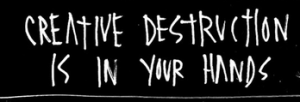 We need to connect our knowledge and put these assets into solving grand challenges.
We need to connect our knowledge and put these assets into solving grand challenges.
Lets focus on the bigger picture here.
Developing our knowledge and then putting it to good use gives us the potential for securing a competitive position- that goes without saying, perhaps.
Living in Europe offers us enormous history, diversity and a constant respect for the make-up of its different cultures.
Europe is a very proud continent forged from this history of competitiveness but it is grappling with its place in the global world where others seem to have a greater present-day advantage.
Continue reading “The Real Race is to Invest in Knowledge Assets and Grand Innovation Challenges”
